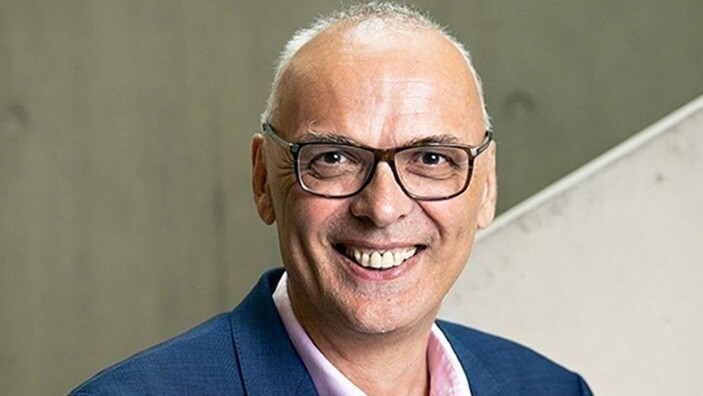
What is the focus of the work at the Cambridge Centre for Health Leadership and Enterprise?
At the Centre, we focus on studying and developing new types of businesses – both for-profit and not-for-profit – that can deliver better health outcomes, at scale and in a more equitable, accessible, and affordable manner.
Despite remarkable advancements in medical science, societies worldwide continue to face a growing burden of ill health. The healthcare industry clearly struggles to quickly translate scientific and technological progress into better and more equitable and more affordable health. The Centre believes that improving healthcare requires large-scale structural transformation driven from the bottom up. This involves creating new delivery organisations that can better align existing technology with patient needs than current systems.
Why is the Centre based in a business school? Wouldn’t it fit better in a medical school?
While we collaborate closely with colleagues in medical schools, hospitals and primary care practices, there is a strategic reason for our base in the Business School. Being positioned outside of traditional healthcare institutions makes it easier for us to think creatively without being constrained by the conventional ways of delivering healthcare.
This approach is similar to the story of the IBM PC. When a group of engineers proposed the idea of a personal computer to IBM’s board, it was initially rejected as it wasn’t considered part of IBM’s core business. The CEO, however, supported the idea and provided a small budget – but insisted that the team work from a remote location in Florida, away from the main headquarters. He believed that the distance would prevent the established mindset from stifling the new project. The rest is history.
At the Centre, we see ourselves as a similar “Florida” for healthcare – a place where innovators have the freedom to think outside the box and challenge the status quo, unencumbered by entrenched mindsets.
There are many healthcare think tanks around the world. Is the Centre just another one of them?
Many excellent ideas are being generated in academia and by global think tanks, and idea generation is certainly a substantial part of our work at the Centre. However, what truly sets us apart is our focus on implementation – on delivery – and our “think-do” mindset. Let me explain.
Much of the thinking in healthcare happens at the macro level, focusing on policies and broad strategies like shifting budgets and refining payment models to incentivise better value in patient care.
A topical example is the current emphasis in many countries on moving care from hospitals to the community and into people’s homes. While this high-level policy development is valuable, it is not enough to achieve transformation. What does “shifting care to the community” actually mean, and who is responsible for delivering it? These are the kind of micro-level questions we tackle at the Centre. Aligned with our position in a business school, we complement the top-down policy development approach with a bottom-up approach: What specific changes do we – patients, payers, and society – want to see, and who is accountable for making those changes happen?
Often, no single organisation takes responsibility for delivering patient outcomes, and that’s where the challenges begin. Healthcare delivery is a complex system with many interconnected parts and numerous problems. In healthcare commissioning – turning policy into action – much of the focus is on designing and overseeing contracts with existing delivery organizations. Our approach is different – instead of refining the suite of contracts with existing organizations, we focus on creating new types of organisations that can provide reliable and scalable turn-key solutions to challenges in the healthcare industry. These innovative “delivery engines” offer focused end-to-end solutions for specific patient needs and payer requirements, tackling problems one by one.
As a “think-do” tank, we don’t stop at the planning stage. Once an idea has taken shape with our industry partners, we focus on helping to launch these new delivery models, evaluating their performance, and ensuring their long-term sustainability. This hands-on approach is what sets us apart from traditional think tanks.
Can you make this more tangible? Can you give some examples?
Certainly, let me give you 2 examples.
Drug shortages and excessive prices of essential medications
Take the issue of shortages and excessive prices of essential medications. Drug shortages are a global challenge, while high prices are a particular issue in the United States. One striking example in the US is the price of generic insulin, which has increased tenfold over two decades. This has forced many patients to ration their supply, resulting in worsening diabetes. On the shortages side, the Department of Health and Social Care in the UK regularly lists around 100 drugs as being in short supply, many of them essential. This issue extends across the USA, Europe, and globally. Why does the generic drug supply chain struggle to deliver long-established, essential medications reliably and at a fair price to the patients who need them? And, more importantly, how can we improve this situation?
It’s a complex problem and a prime example where a solution requires structural transformation of the industry. We have been collaborating with partners at Intermountain Health and other U.S. health systems to support and evaluate a new not-for-profit drug manufacturer, Civica RX. Civica RX has made significant progress in reducing drug shortages in hospitals and is now addressing insulin and other drug pricing challenges in the US. The company is based on a novel not-for-profit business model, which we call a “healthcare utility”.
Research at the Centre has provided solid evidence that this model can be adapted to address other significant challenges in healthcare. Building on the success of Civica RX, we are now exploring these opportunities with our partners through the Centre’s Healthcare Utility Initiative.
Asthma care
Take another example – asthma care. Asthma ranges from mild to very severe cases. The most severe require specialized care in asthma centres, while the mildest can be managed with minimal support from primary care doctors. However, many patients fall between these extremes and suffer from poorly controlled symptoms, leading to long- term harm and costly emergency visits and hospital admissions. In collaboration with government and industry partners, we are developing a novel “delivery engine” for asthma care, focused on reducing avoidable emergency visits for these patients. This evidence-based model is designed for rapid scaling to ensure affordable and equitable access across the nation. Again, this structural transformation of the delivery of care is adaptable to other problems, which we explore within the Centre’s Precision Population Health Initiative.
Why are you so focused on scale? Isn’t healthcare a local business?
Yes, today’s healthcare delivery is largely local, delivered by primary care practices and local hospitals. These organisational models have a long tradition and were developed during the last century with a primary focus on treating the sick and keeping people alive. Our challenge today is to prevent people from needing this kind of care in the first place – we need to focus on better health and prevention. However, hospitals and primary care practices aren’t designed to deliver this shift. They are already complex organizations, with fragmented delivery models tailored to local needs. Adding the responsibility of prevention and population health management only makes them even more complex. We believe this approach will not achieve the step-change improvement we need.
Instead, we focus on developing new “delivery engines” that can integrate with existing primary care and hospital systems while operating reliably at scale. These delivery engines target specific problems, unlike hospitals and primary care practices, which are designed to address a wide range of healthcare issues. By introducing these focused solutions, we can reduce the burden on primary care and hospitals, allowing them to concentrate on their core roles: building long-term, trust-based relationships with patients in primary care, and providing specialised diagnostic and treatment services in hospitals.
Our focus on scalability is essential because, to fully leverage rapid advances in biopharma, diagnostics, med-tech, and AI for everyone’s benefit, we cannot rely on a piecemeal, locality-by-locality approach. These technologies offer huge scale economies. What we need are solutions that, while adaptable enough to integrate with local healthcare systems, also have a degree of standardisation to ensure reliable and rapid deployment across nations and even globally. This is why, at the Centre, scalability is a fundamental requirement for any business model we develop.
How do you see the interplay between healthcare as a public service and private business in your model?
The Centre is founded on the premise that extending healthy lives for all requires innovative healthcare delivery systems that are both sustainable and socially acceptable. Private businesses will play a crucial role in driving these innovations, providing both expertise and capital. However, there are many examples of privately funded health service innovations that, after initial success, became diluted through speculative acquisitions or driven by excessive profiteering, ultimately losing their core value. To prevent this, we ensure that the service innovations we help develop at the Centre are preserved for society and not sacrificed in the pursuit of short-term profits. Where private businesses are involved, they must operate within guardrails that prevent short-term profit-seeking from undermining long-term value and societal health outcomes.
One of the Centre’s key roles, leveraging Cambridge’s global influence, is to collaborate with governments and industry players to establish these guardrails and associated governance models for the new delivery vehicles we develop. As a public institution, we also play a role in evaluating, monitoring and maintaining standards to ensure that these innovations serve the public good.
Featured faculty
Stefan Scholtes
Dennis Gillings Professor of Health Management
Director, Cambridge Centre for Health Leadership and Enterprise
About CCHLE
The Cambridge Centre for Health Leadership & Enterprise (CCHLE) is committed to pioneering innovative solutions for healthcare delivery in the 21st century. The centre’s core focus is on developing, implementing, and evaluating novel organisational and business models that aim to transform the healthcare landscape. Its mission is to make high-quality care more accessible, equitable, and affordable while addressing the growing burden of chronic diseases.





